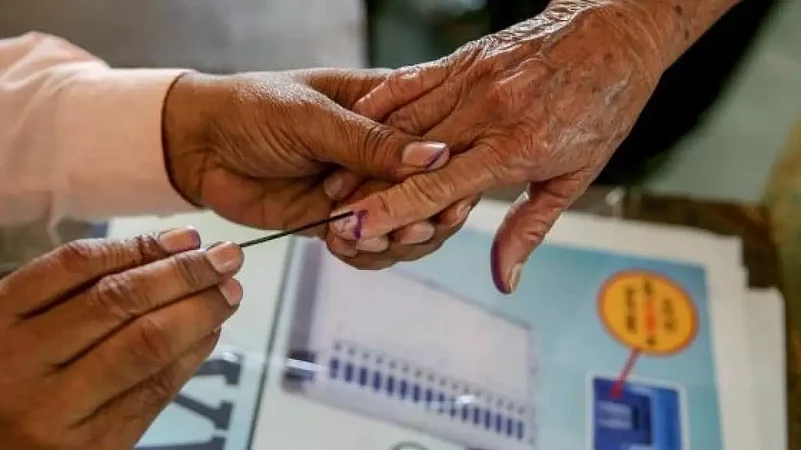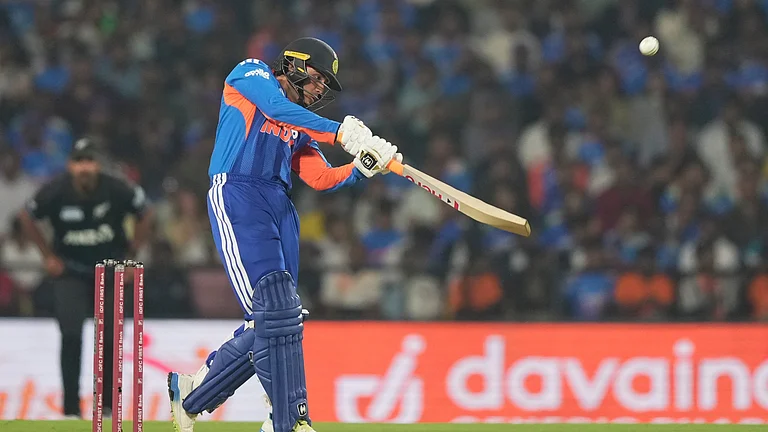Amid reports of widespread violence and killings since the day polls were announced, polling finally began in rural West Bengal at 7 am today.
According to the officials, a total of 2.06 lakh candidates are in the fray for elections to 73,887 seats in the three-tier panchayat system.
As per media reports, around 5.67 crore voters are likely to exercise their franchise to choose representatives for nearly 928 seats across 22 zilla parishads, 9,730 panchayat samities, and 63,229 gram panchayats seats.
Ahead of the 2024 parliament elections, the panchayat election, which includes nearly 65 per cent of the state's population, is serving as a litmus test for the state's political parties and it also holds the power to reshape the entire political scenario of the state.
This election is also an opportunity for the parties to evaluate their booth-level organisation ahead of the 2024 Lok Sabha polls, as most of the 42 parliamentary seats are situated in rural areas of the state.
The entire democratic process of choosing representatives for village councils will be held under the watchful eyes of central forces as, according to the officials, nearly 65,000 active central police personnel and 70,000 state police personnel will be deployed for the polls.
Violence in Bengal
Widespread violence in various parts of Bengal satrted making headlines since the day the polls were announced on June 8 which led to the death of over a dozen people, including a teenager.
For the first time, Raj Bhavan played an active role in addressing the issue of poll violence, with Governor C V Ananda Bose opening a 'Peace Home' at the governor's house to address complaints of the commin people.
The governor this time was seen rushing to violence-hit areas to assuage the victims and their families.
TMC-BJP feud continues: Who said what?
Chief Minister and TMC supremo Mamata Banerjee and the party's national general secretary Abhishek Banerjee led the party's campaign.
During campaigns, they primarily focused on the need to shun strong-arm tactics by its cadres and allow more democratic space to the political opponents, to avoid the rerun of the 2018 rural polls when it had won around 34 per cent seats uncontested.
"BJP seems to forget that people vote and not the central forces. If the BJP doesn't have the support of people, no matter how many central forces you seek, the mandate will not change," Abhishek Banerjee said.
BJP state president Sukanta Majumdar, national vice-president Dilip Ghosh, and leader of opposition Suvendu Adhikari led the saffron party's campaign, whereas state Congress president Adhir Ranjan Chowdhury and CPI(M) state secretary Mohammed Salim led their parties' respective poll drives.
"The TMC wants to make the rural polls a replay of 2018, but we won't allow this to happen this time. BJP will defeat the TMC," Majumdar said.
Chowdhury had said the "grab-all mindset" of the TMC, with no space for any form of opposition, has led to this anarchic situation.
Echoing him, CPI(M) leader Sujan Chakraborty said people will reject both the TMC and BJP in the polls.
The Indian Secular Front (ISF), with its limited presence in parts of North and South 24 Parganas, too bevame prominent this time as its leader and lone MLA Nawsad Siddique led the party’s campaign, which often resulted in clashes with the ruling TMC in Bhangor in South 24 Parganas.
TMC's track record in Bengal Panchayat Polls
In the 2013 panchayat polls, the TMC won over 85 per cent of the seats, despite heavy deployment of central forces.
In the 2018 rural polls, the TMC won 90 per cent of the panchayat seats and all the 22 zilla parishads. However, these elections were marred by widespread violence and malpractices, with the opposition alleging they were prevented from filing nominations in several seats.


























